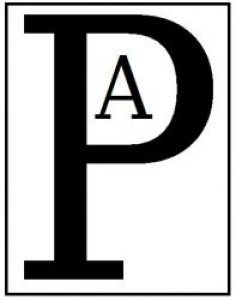
Not too long ago, the EU’s Foreign Subsidies Regulation celebrated its first “100 days” since coming into force (see our previous post). With the European Commission’s first unannounced inspection under the regulation, this week marks another “milestone”. Just the right time to recapitulate the past – equally exiting – weeks of enforcement and to dare a look into the crystal ball on how things might develop further.
As a quick recap: The Foreign Subsidies Regulation (the FSR) is meant to tackle the (perceived) issue of companies receiving subsidies from non-EU countries and thereby gaining an unfair competitive advantage over other companies in the EU’s internal market. The FSR is built on three main pillars: (1) A review regime for M&A deals, (2) a review regime for public procurements of a certain size, and (3) the power for the European Commission to launch (ex officio) market investigations.
The FSR in its entire beauty
While, as expected, the FSR review regime for M&A deals has been the most prominent “FSR-pillar” with traction from the very beginning, the review regime for public procurements and the European Commission’s powers for launching market investigations have for a long time been perceived as standing in the shadow of the M&A regime – also because the Commission’s FSR team was relatively small.
The last weeks have shown that this is no longer the case. While the Commission has received more FSR merger notifications than expected, it also has received around 350 submissions on public procurement (of which only a fraction were formal notifications) and has initiated its own market investigations.
The review regime for public procurement
In recent weeks, the Commission has launched three (!) in-depth investigations into public procurement bids.
The first in-depth investigation concerned a subsidiary of the Chinese state-owned train manufacturer CRRC, who – after the Commission launched its in-depth investigation – dropped out of the relevant tender process in Bulgaria. The other two investigations – which are still on-going – both relate to Chinese companies engaging in public tenders for solar panels in Romania.
It may be a mere coincidence, but it stands out that all three cases involve Chinese companies. Being remarkably open, the Commission’s Executive Vice President Vestager explained that the Commission has learned from the “playbook” China had already applied with regard to the solar panel industry and that it will – going forward – have a special eye on cleantech, legacy semiconductors and beyond as it seeks to counter China’s supply side support strategies.
The power to launch market investigations
In addition to its activities concerning public procurements, the Commission has just recently also brought the third “FSR-pillar” into spotlight.
It has not only launched its first ex officio investigation under the FSR as regards (who would have thought) Chinese suppliers of wind turbines with respect to the conditions for the development of wind parks in Spain, Greece, France, Romania and Bulgaria, but also, just a few days ago, conducted its first ex officio inspections at the Dutch and Polish premises of Chinese company Nuctech, a company active in the production and sale of security equipment. These raids were carried out in parallel and in close cooperation with national competition authorities.
Outlook
The past weeks have shown that the enforcement of FSR has picked up speed and quickly reached the left lane. Although the history of the FSR is still young, the following aspects stood out and may indicate that this is just the beginning of even more FSR enforcement:
- The times in which the Commission may not have had sufficient resources to effectively make use of the instruments offered by the FSR seem overcome. Conducting several in-depth investigations and inspections in parallel seems to indicate that the regulator has (at least temporarily) found a solution to its perceived staffing problem.
- Recent cases taken up by the Commission (ex officio) have allowed the political dimension inherent in the FSR to shine through more strongly. While some may see this as the Commission being after subsidies from certain countries, Mrs Vestager keeps emphasizing that “[E]veryone is welcome to trade with Europe. But they have to play by the rules.”
- To the extent publicly known, the Commission has not yet dealt with all complaints on its desk under the FSR, and there might eventually be more to come, including with regard to professional football (see here).
Photo by note thanun on Unsplash
